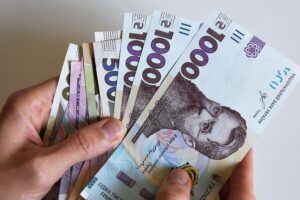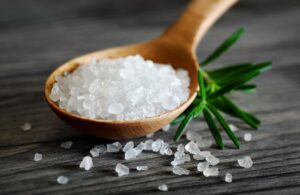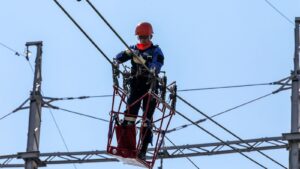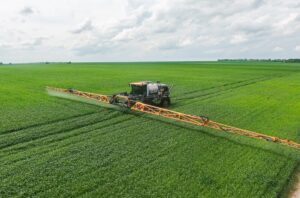
State-owned Oschadbank, Ukrgasbank, and Ukreximbank (all based in Kyiv) provided Ukrainian cities with 10 loans totaling UAH 3.0 billion in the second quarter of 2025, according to information from the Ministry of Finance.
According to the information, Ukrgasbank issued the largest number of loans – seven loans totaling UAH 1.93 billion.
Lviv received the largest loan from the bank in the amount of UAH 650.5 million.
The interest rate for the first year is 16.15% per annum, and from the second year onwards, the rate is variable based on the indicative UIRD 12M rate + 3.02% margin (calculation: 16.15% – 13.13% UIRD 12M on the date of the agreement). The interest rate is reviewed annually but cannot exceed 22%. The loan term is 60 months, with a grace period of 24 months.
Dnipro received two loans from the aforementioned bank for a total amount of UAH 543.1 million.
The first loan is for UAH 333.1 million with an interest rate of 15.5% in the first year, followed by a variable UIRD 12M + 3% with annual review, but not exceeding 23%. The loan term is 36 months, with a grace period of 12 months.
The second loan is for UAH 210.0 million, with an interest rate of 16.15% in the first year from the second year – variable UIRD 12M + 3.03% (calculation: 16.15% – 13.12% UIRD 12M on the date of the agreement), maximum – 23%, term – 36 months, grace period – 12 months.
Kryvyi Rih has attracted two loans from Ukrgasbank for a total amount of UAH 394.3 million.
The first loan is for UAH 217.6 million, and the second is for UAH 176.7 million.
Both loans have a fixed rate of 15.5% in the first year, followed by a variable rate of UIRD 12M + 3% with annual review, but not exceeding 23%. The loan term is 84 months, with a grace period of 18 months.
Zaporizhia also received a loan of UAH 300.0 million. In the first year, the rate is 15.5%, and from the second year, a variable rate based on UIRD 12M + 3% with a limit of no more than 23%. The term is 84 months, with a grace period of 18 months.
In addition, the village of Kolchino in Zakarpattia received a loan of UAH 50.0 million. In the first year, the rate is 16.15%, then a variable rate of UIRD 12M + 3.03% (based on 16.15% – 13.12% UIRD 12M on the date of the agreement), with a limit of 23%. The loan is provided for a term of 36 months.
Oschadbank issued two loans totaling UAH 968.0 million. The first loan was received by Lviv – UAH 668.0 million, with an interest rate of 16.15% in the first year from the second year, variable UIRD 12M + 3.02% margin (16.15% – 13.13% (UIRD 12M on the day preceding the date of the agreement) with annual review, but not more than 22% for 60 months, grace period – 24 months.
The second loan was received by Dnipro – UAH 300.0 million first year – 16.1% per annum, from the second year – variable UIRD 12M +2.98% margin (16.1% – 13.12% (UIRD 12M on the day preceding the date of the agreement), but not exceeding 22% for 60 months, with a grace period of 12 months.
In turn, Oschadbank provided two loans to Lviv and Dnipro for a total amount of UAH 968.0 million.
Lviv received a loan of UAH 668.0 million. The interest rate for the first year is 16.15% per annum. Starting from the second year, a variable rate will apply: indicative UIRD 12M + margin 3.02% (calculated based on the UIRD 12M level of 13.13% on the day preceding the conclusion of the agreement). The rate is reviewed annually but will not exceed 22%. The term is 60 months, with a grace period of 24 months.
Dnipro received a loan of UAH 300.0 million. In the first year, the rate is 16.1% per annum. From the second year, the rate will be variable UIRD 12M + margin of 2.98% (with a base UIRD 12M of 13.12% at the time of signing the agreement). The maximum rate is capped at 22%. The loan term is 60 months, with a grace period of 12 months.
Ukreximbank provided a loan of EUR 1.8 million (approximately UAH 87.7 million) to Sokil in the Lviv region. The rate is variable: based on the indicative EURIBOR 6M rate plus a margin of 4.24% (at the date of the agreement, this amounted to 6.3% – 2.06% EURIBOR 6M). The maximum rate is capped at 8% per annum. The loan term is 60 months, with a grace period of 12 months.

In January-June 2024, Ukraine imported 211,692 thousand tons of salt, which is 45.88% less than in the same period a year earlier, when external purchases amounted to 391,186 thousand tons.
According to statistics released by the State Customs Service (SRS), spending on salt purchases on foreign markets in the first half of 2025 decreased by 48.46% to $26.919 million, compared to $52.225 million in the same period of 2024.
The main suppliers of salt to Ukraine in January-June were Egypt, which accounted for 46.09% of supplies, worth $12.407 million, Turkey (17.57% and $4.730 million) and Romania (13.41% and $3.611 million)..
A year earlier, the top three salt suppliers were the same: Egypt (54.89% or $28.668 million), Turkey (17.15% or $8.956 million) and Romania (14.69% or $7.671 million).
As reported, Ukraine exported 710,040 tons of salt worth $28.32 million in pre-war 2021, while in 2022, exports fell fivefold in real terms to 142,038 tons, and revenues fell even more sharply to $3.82 million. The main buyers of Ukrainian salt in 2021 were Poland (39.1%), Hungary (27.4%), and Romania (7.3%). In 2021, Ukraine imported 142,810 tons of salt worth $12.92 million.
After the occupation by Russian troops in April 2022 of the country’s largest salt producer, Artemsol, Ukraine virtually stopped its exports and became a net importer.
The Tereblya salt deposit (Zakarpattia region) resumed salt production in August 2023. The head of the Zakarpattia Regional State Administration, Viktor Mykyta, said that Zakarpattia would be able to provide Ukraine with 100% of its technical and table salt.
The Dolinsky deposit (Ivano-Frankivsk region) plans to resume salt production in the near future. Work is currently underway on the Dolinsky deposit development project, and a thorough environmental impact assessment is being conducted. Specialists from the State Scientific Research and Design Institute of Basic Chemistry “Niochim” are preparing a design solution for a future salt production plant. A special permit for the extraction of rock salt (halite) in 2023 was obtained by the Kharkiv-based company “Planeta Komfort.”

In January-June 2024, Ukraine imported 22,617 thousand tons of coffee, which is 6.1% less than in the same period a year earlier, when foreign purchases amounted to 24,094 thousand tons.
According to statistics released by the State Customs Service (SCS), spending on coffee purchases in the first half of the year rose by 36.9% to $173.403 million, compared to $126.684 million in the same period a year earlier.
The main suppliers of coffee to Ukraine were Poland, which accounted for 16.58% of imports, worth $28.749 million, Brazil – 12.75% and $22.104 million, and Germany – 12.49% and $21.653 million.
A year earlier, the top three coffee suppliers to Ukraine were Poland (16.83% worth $21.326 million), Italy (15.87% worth $20.1 million), and Brazil (12.31% worth $15.598 million).
Tea imports in January-June 2025 decreased by 22.87% to 5,452 thousand tons compared to 7,069 thousand tons in the same period last year. In monetary terms, imports in the first half of 2025 decreased by 16.26% and amounted to $20.957 million compared to $25.027 million last year.
At the same time, the three key suppliers of tea to Ukraine in January-June remained unchanged: Sri Lanka (30.13% worth $6.313 million), Kenya (17.77% worth $3.724 million) and China (14.63% worth $3.067 million). Last year, these countries accounted for 28.95%, 23.07%, and 11.33% of tea exports to Ukraine, bringing them $7.247 million, $5.774 million, and $2.835 million, respectively.

The Ukrainian Cabinet of Ministers has simplified procedures for restoring elements of the gas transportation system and power lines, the Ministry of Energy announced on Monday.
“This will enable companies to implement projects for the construction and reconstruction of gas transportation system components, in particular special bridges for reverse gas supplies, more quickly,” the ministry explained.
In addition, conditions for the construction of new power lines will be simplified, especially in frontline regions, to ensure rapid restoration and reliable electricity supply to consumers.
“The government has adopted a strategic decision aimed at strengthening the sustainability of Ukraine’s energy system in preparation for the autumn-winter period. This step will allow for the rapid restoration of power lines damaged by the war and the construction of new ones, especially in frontline areas,” said Energy Minister Svetlana Grinchuk.
According to her, this decision will also significantly reduce the time needed to prepare and implement technical solutions aimed at strengthening the reliability and flexibility of the natural gas transportation system.

In 2024, the Metinvest mining and metallurgical group reduced its rolled steel production in the UK and the EU by 13% to 1.367 million tons, which was caused by unfavorable market conditions in the EU, in particular the availability of cheap Russian slab, according to the group’s annual report.
According to the report, flat steel production at Metinvest Trametal decreased by 3% to 466,000 tons, at Ferreira Valsider by 45% to 190,000 tons, and at Spartan UK by 22% to 153,000 tons.
Overall, Trametal accounted for 34% of total production in the UK and the EU last year (31% in 2023), Ferreira Valsider for 14% (22%), Promet Steel for 41% (35%), and Spartan for 11% (12%).
As reported, in 2024, Metinvest reduced sales of finished metallurgical products by 5% compared to the previous year, semi-finished products by 3%, but increased coke sales by 6%, and sales of other products and services increased by 33%.
Revenue from the metallurgical segment remained virtually unchanged compared to 2023 and amounted to $4.824 billion, while the segment’s share in consolidated revenue decreased by 6 percentage points (pp) to 60%.
At the same time, sales of merchantable pig iron decreased by 15% to $266 million due to a 16% reduction in shipments to 558 thousand tons. In particular, the reduction in resales and production volumes of the group amounted to 12% and 52%, respectively. The share of resales in total sales increased by 4 p.p. to 95%. North America and Europe remained the main markets for this product. They accounted for 71% and 23% of total shipments last year, compared with 70% and 26% in 2023.
Sales of semi-finished products increased by 9% last year to $389 million, thanks to a 16% increase in sales volumes to 716,000 tons amid a reduction in inventories. Shipments to the Middle East and North Africa (MENA) increased by 237,000 tons, accounting for 50% of total shipments in 2024 (20% in 2023). In contrast, shipments to Europe decreased by 143,000 tons and accounted for 38% of total sales (68% in 2023). The average selling price declined in line with the dynamics of CFR Turkey square billet prices (down 7% compared to 2023).
In 2024, flat steel sales declined by 6% to $2.244 billion. This was due to lower sales prices following the dynamics of the corresponding benchmark for hot-rolled coils CFR Italy, which fell by 9%. Total shipments increased by 7% to 3.047 million tons, driven by a 26% increase in resales to 2.111 million tons, which increased their share in total shipments to 69% (up 10 percentage points). Deliveries were primarily to Europe, which accounted for 72% of the total (71% in 2023). Sales in the region increased by 193,000 tons thanks to demand from key customers, expansion of the customer base, and stable operations at Black Sea ports. Domestic sales accounted for 23% of sales (25% in 2023).
Sales of long products remained unchanged in 2024 at $948 million. Shipments increased by 5% to 1.372 million tons, primarily due to higher production volumes at Kametstal. Ukraine and Europe remained the main markets for these products. They accounted for 45% and 35% of total sales, respectively, compared with 48% and 39% in 2023. The Group increased its shipments to North America, which accounted for 17% of total sales in 2024, compared with 12% a year ago. Average sales prices declined in line with the benchmark for CFR Turkey square billets.
The report notes that in 2024, Metinvest achieved significant results from operational improvements. In particular, in the metallurgical segment, coke consumption at Kametstal was reduced and blast furnace productivity was improved thanks to the rapid adaptation of pulverized coal injection technology to alternative types of coal under military supply restrictions. In addition, the optimization of raw material procurement contributed to the positive results.
Metinvest is a vertically integrated group of mining and metallurgical companies. Its enterprises are located in Ukraine, in the Donetsk, Luhansk, Zaporizhia, and Dnipropetrovsk regions, as well as in the European Union, the United Kingdom, and the United States. The main shareholders of the holding company are SCM Group (71.24%) and Smart Holding (23.76%). Metinvest Holding LLC is the management company of the Metinvest Group.
EU, METINVEST, PRODUCTION, rolling, UK

The TAS Agro agricultural holding has begun sowing winter crops for the 2026 harvest, starting with winter rapeseed in the fields of the Central Cluster in the Kyiv region, the company’s press service reported on Facebook.
“In accordance with the company’s crop rotation strategy, a total of 16,000 hectares are planned to be sown with winter rapeseed,” the agricultural holding said.
Agrotrade specified that sowing is carried out with the simultaneous application of complex fertilizers using Strip-till technology, which will allow for high-quality and friendly germination in case of moisture deficiency.
The Agrotrade group of companies is a vertically integrated holding company with a full agricultural cycle (production, processing, storage, and trade of agricultural products). It cultivates over 70,000 hectares of land in the Chernihiv, Sumy, Poltava, and Kharkiv regions. Its main crops are sunflower, corn, winter wheat, soybeans, and rapeseed. It has its own network of elevators with a total storage capacity of 570,000 tons.
The group also produces hybrid seeds of corn, sunflower, barley, and winter wheat. In 2014, a seed plant with a capacity of 20,000 tons of seeds per year was built on the basis of the Kolos seed farm (Kharkiv region). In 2018, Agrotrade launched its own brand, Agroseeds.
The founder of Agrotrade is Vsevolod Kozhemyako.